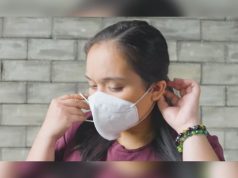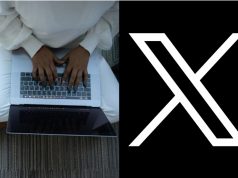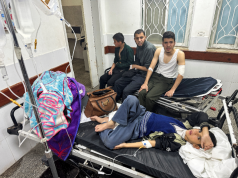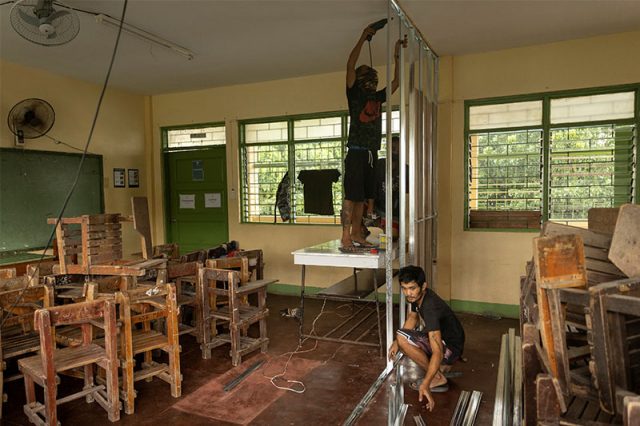
UNICEF Philippines is calling on the government “keep the momentum on learning recovery as classes go on full face-to-face modality.”
The five-day full face-to-face classes in public schools pushed through on November 2, a day before the implementation of full in-person classes, according to the Department of Education.
UNICEF listed points of improvement as the country implements the return of in-person classes.
It cited that most public schools in the Philippines still do not have the minimum facilities for face-to-face classes
The international organization also made emphasis on the effort that should be done to reach the most vulnerable children “including children with disabilities and children living in disaster-prone areas.”
“Some 70 percent of public schools do not have the minimum facilities, provisions and practices for safe water supply, adequate toilets and hygiene education,” UNICEF said.
“Addressing children’s mental health and psychosocial needs, strengthening protection measures to prevent sexual abuse, and engaging parents and caregivers are also important. Children 3-4years old attending pre-school need significant support to be ready to enter formal school,” it added.
In a post on Facebook, UNICEF Philippines also listed the following conditions that schools needed to meet for a child’s recovered learning:
- Improve hygiene and sanitation facilities in more schools
- Address children’s mental health needs
- Strengthen the protection of children from sexual abuse and exploitation
- Support pre-schoolers in getting ready to enter formal school
Some schools opened their classrooms once again last August to students after two years of distance learning due to the COVID-19 pandemic.
The first day of the return to the traditional form of learning, however, was met with concerns about the shortage of armchairs in classrooms, public transportation woes of students, and overcrowding of parents and guardians in front of schools.
RELATED: ‘Fix public transpo first’: Renewed call after LTO asked public ‘not to go too early’ at school |On 1st day of F2F classes, 7th graders in Manila sit on floor due to alleged armchair shortage
The voluntary wearing of face masks, the basic protection against the highly contagious disease, also became a subject of worry for some parents.
By virtue of Executive Order No. 7, President Ferdinand Marcos Jr. allowed the voluntary wearing of face masks in indoor and outdoor settings amid the threat of the new variants of COVID-19 and monkeypox in the country.
RELATED: Pinoy parents fret over DepEd rule on optional face masks in classrooms
Last Tuesday, DepEd spokesperson Michael Poa admitted the shortage of classrooms and teachers ahead of the opening of classes.
“We have to admit po na talagang ‘pag sinabing kakulangan sa classrooms or kakulangan sa school buildings, we could not deny that, talaga pong meron tayong mga kakulangan. That is something that, of course, we couldn’t solve overnight,” the lawyer-spokesperson told dzBB.
“Meron po talaga tayong kakulangan sa mga guro. Ang ginagawa natin, ‘pag nakikita natin na may mga schools na may konting sobra, of course, subject to the rules on transfer, kung pwede sila i-transfer, tina-transfer natin sila sa ibang schools na may kakulangan,” he added.
Despite this, the classes pushed through on November 2.
‘Milestones in learning recovery’
Meanwhile, despite the challenges faced by the education department in implementing the face-to-face classes, UNICEF Philippines supported the national government’s push for the full implementation of face-to-face classes in schools nationwide.
“Since the first day of the new school year in August, children in preschool and basic education have gradually returned to school to learn and interact with their teachers and classmates,” the organization said.
“According to a recent Social Weather Survey (SWS) commissioned by UNICEF, around 94 percent of `Filipinos were satisfied with the process of school reopening’,” it cited.
UNICEF also lauded the government’s implementation of the RAPID framework for learning recovery in the Philippine education system.
The United Nations also promotes the RAPID framework.
Here is an infographic that details the framework, citing information from UNICEF, the World Bank and UNESCO.
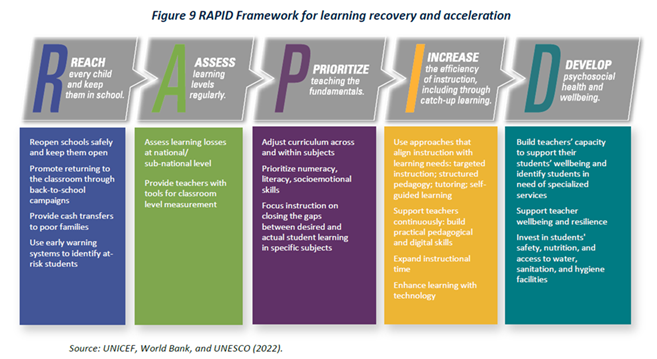
UNICEF Philippines Representative Oyunsaikhan Dendevnorov further described the education authorities’ implementation of the traditional modality of learning in the country as “milestones”.
“The decisive action of education authorities to start school and ensure full face-to-face learning are milestones in our learning recovery and will allow to further improve foundational skills such as reading, writing and basic numeracy. Building on these foundational skills will help us inch closer to a resilient education system that leaves no one behind,” Dendevnorov said.





